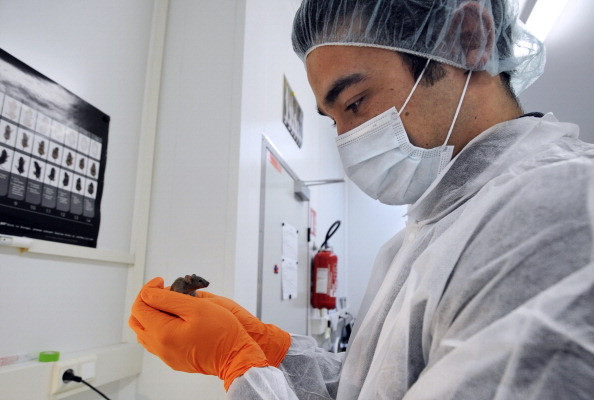Huntington's disease drug trial: Treatment could 'alter course of devastating disease'

A potential cure for Huntington's disease has been successfully tested in mice and monkeys. As human trials get underway, scientists hope that the IONIS-HTTRx drug will help the thousands of people worldwide affected by this rare illness.
The full results from the animal trials will be presented at the 68th Annual Meeting of the American Academy of Neurology.
Huntington's disease is a rare hereditary disease which causes damages to certain nerve cells in the brain. It can lead to uncontrolled movements, cognitive and behavioural problems and eventually, to death. In the USA and in Europe, the frequency of the disease ranges between 40 and 100 cases in a million people.
The disease is caused by mutation of the gene HTT mRNA which leads to the production of the huntingtin (Htt) protein responsible for its development.
It is precisely that gene that is targeted by the drug currently under trial. IONIS-HTTRX is an antisense drug which stops the production of the HTT protein by silencing the gene.
Clinical improvements
In both mice and monkeys, the drug appeared to be well tolerated throughout the trial. The impact on the symptoms were positive in both cases, as the drug delayed the progression of the disease, and reversed some of its effects.
In the mice model, improvements in the motor functions were noted just a month after the animals were first given the drug. After two months, all of the symptoms had disappeared. Another group of mice tested showed improvements after 8 weeks, and were cured for 9 weeks after they stopped taking the drug
In monkeys, scientists noticed lower levels of the HTT protein, especially in the central nervous system. Cortical hungtingtin levels (levels in the cerebral cortex) for instance were reduced by 50%.
Targeting the causes
If successful in humans, it would be the first drug that target the causes of the disease, with the possibility of completely reversing its disastrous effects.
"It is very exciting to have the possibility of a treatment that could alter the course of this devastating disease," said clinical study principal investigator Blair R. Leavitt
"Right now we only have treatments that work on the symptoms of the disease".
Phase 1/2 trials combine a phase 1 and a phase 2 trial in the same protocol. The idea is conduct Phase 1 first on a small number of participants to determine the Maximum Tolerable Dose and then to treat more patients are treated at that dose, in Phase 2, to further evaluate safety and/or efficacy. These two parts of the trial can take a long time to be completed.
However, prescribing the drug to patients is still a long way away. The trial is now in its Phase 1/2a, with only a small group of persons being tested. It could therefore be a few years before the trial is completed and IONIS-HTTRX is deemed safe for humans.
The drug was developed by scientists at Ionis Pharmaceuticals in collaboration with their partners CHDI Foundation, Roche Pharmaceuticals and academic collaborators at University of California, San Diego. The clinical trials are now supported by Ionis Pharmaceuticals.
© Copyright IBTimes 2025. All rights reserved.






















